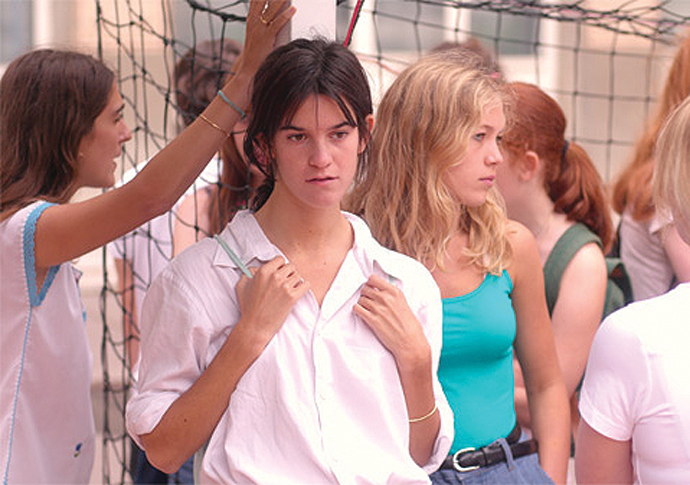Schoolgirl on a crush course in Spring Blossom
Suzanne Lindon’s remarkable debut feature is a thought-provoking story about a student falling in love with an older man
Thursday, 22nd April 2021 — By Dan Carrier

SPRING BLOSSOM
Directed by Suzanne Lindon
Certificate:15
☆☆☆
IT takes time to work yourself into a position in the film industry that someone is willing to write your name on a clapperboard. Directors at the helm of major releases are rarely in their 20s, allowing them a wisdom when creating a vision the cinema-goer will recognise and therefore buy into the narrative.
Suzanne Lindon’s debut feature, Spring Blossom, is remarkable from the off.
The 20-year-old, who is also the lead, has created a polished and thought-provoking story about a school student falling in love with an older man.
Suzanne (Lindon) lives with her parents (Florence Viala and Frédéric Pierrot), and her self-assured big sister in Paris.
This is not a dysfunctional family, but rather a warm and safe haven for a child moving each day further into adulthood.
Yet Suzanne is uneasy and detached. She finds her peers boring, and stands aloof – a point made early on as friends sit around a café drinking coke, while she plumps for the supposedly more sophisticated Grenadine and lemonade.
One morning, as Suzanne walks to school, she spots the crushingly handsome Raphael (Arnaud Valois), an actor in an achingly worthy three-hander in an arty theatre.
Suzanne becomes intrigued, and her curiosity as to the life this 30-something leads develops into an idealistic crush.
Raphael (an intentionally awkward performance by Valois) is the weakest point. We are shown his professional agony, playing the same role in dreary monotony and not much else. This doesn’t ring true – you have to wonder how long a run such a play is enjoying. It also is a barely plausible reason as to his motivations to chat up a minor.
Perhaps his half-formed character is meant to lend a dreaminess as if this is a figment of Suzanne’s imagination – and perhaps that is why a couple of sore-thumb-style arty staged dances are thrown in.
Whatever the reasons, we discover virtually nothing about Raphael except he is willing to allow a 16-year-old to pursue him. His public grooming of Suzanne creates an edginess that hovers throughout, and while the story is told from Suzanne’s point of view, his behaviour leaves questions unanswered.